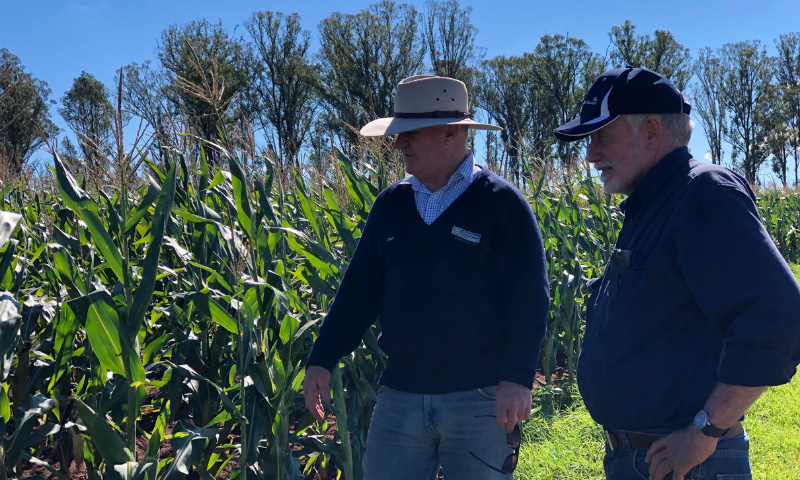Long Term Soil Improvement from using NatraMin
Product Range: NatraMin Hi-Phos
Region: Goodger, QLD
- High quality peanuts through drought conditions
- Reduced need for weed control
Bob Stephens has been farming his property at Goodger (Kingaroy), Qld since his father bought the place in 1955 and he has seen many challenges and changes in the Agricultural Industry during this time. Bob and his wife Marilyn specialise in growing peanuts and rotate with various grain crops like corn.
Bob describes this year as being one of the harshest seasons he can recall even though they have experienced many droughts and floods. Bob explains,
we’ve planted on marginal rainfall this year and had a very hot summer which greatly impacted our peanut crop. The only advantage has been I haven’t had to spray weeds as there hasn’t been enough rain to bring the weeds up!”
Unfortunately, yield has been poor this year as a result of the drought, but once again, the quality of the peanuts grown was high which is what Bob and Marilyn strive for.
One of the greatest challenges that the Stephens have faced, apart from drought and high interest rates, is Sclerotinia Blight (a disease of peanuts caused by a soil-borne fungus) that came along in 1991 and was a huge issue in the area. According to Bob,
we battled on, with there really being no suitable chemicals and that’s probably when I started trialling NatraMin. Ever since then I’ve continued to use NatraMin as I find it successful and it’s the only fertiliser I use on my peanuts.”
NatraMin Hi-Phos is broadcast at 250kg per hectare once a year 6 weeks before the anticipated planting time. Bob also gets the soil tested every couple of years to check how things are going.
I have about 40 years of soil tests as I still have the original one I did right up to the last one. It’s interesting to look at them and see that the soil isn’t deteriorating and in fact it has improved over the years. We did our first soil test in the late 70s and you look at it now and shake your head and wonder how we ever grew anything, but we kept at it and followed what was being advised and the soil is definitely much better now,” explains Bob.
Producing a quality crop to sell and having it recognised as being a quality crop is what Bob finds most satisfying and why he continues to farm in an industry that has had some significant challenges thrown its way.
